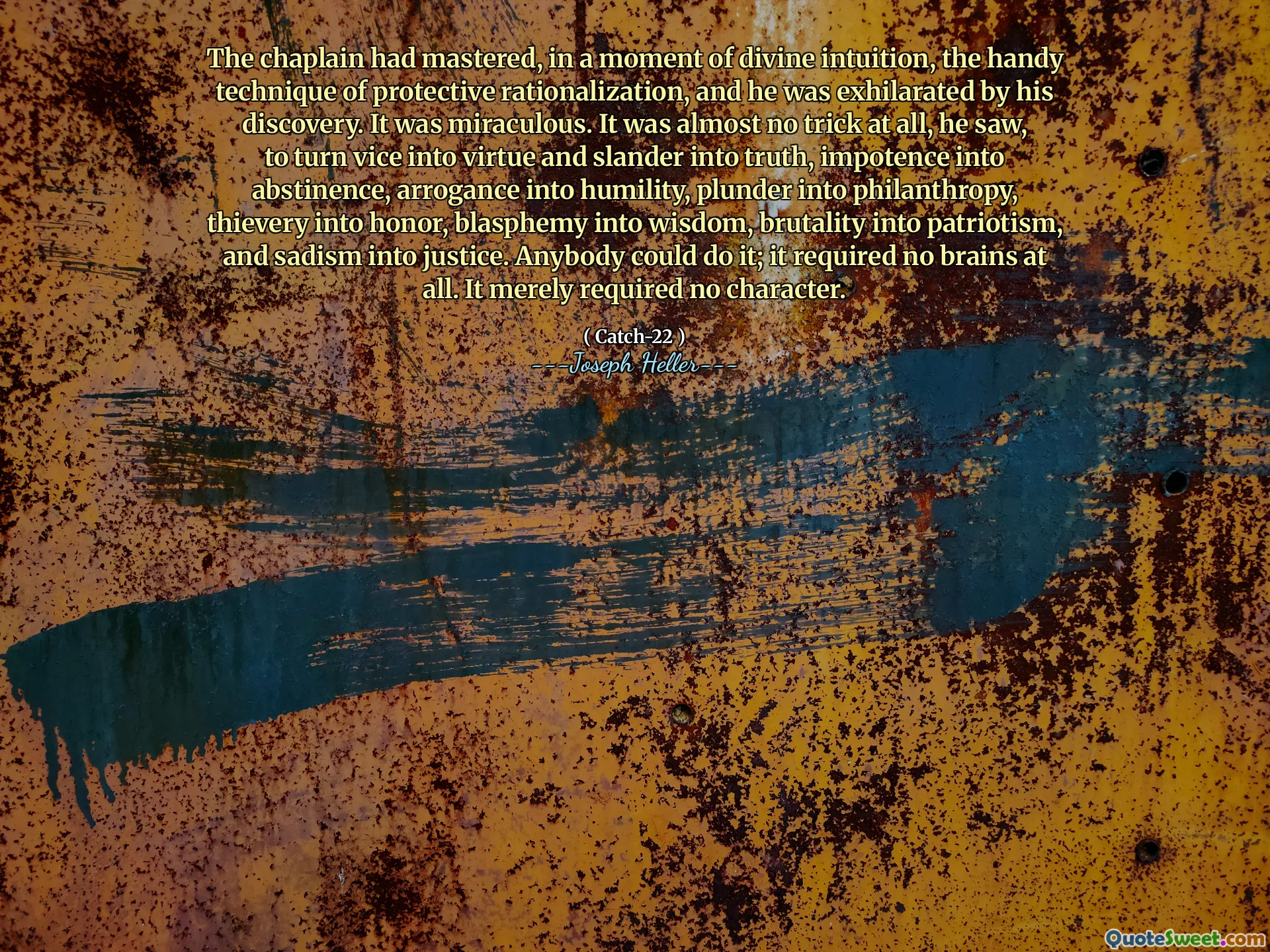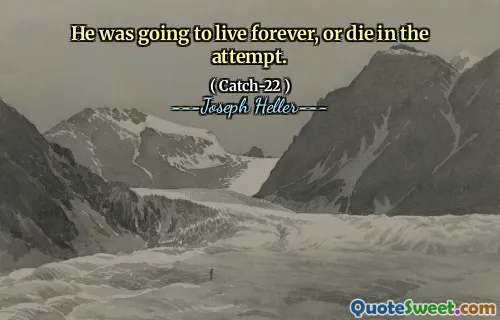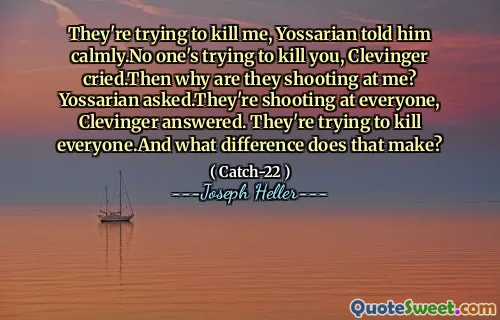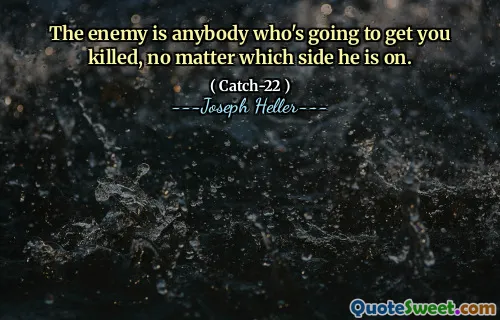
The chaplain had mastered, in a moment of divine intuition, the handy technique of protective rationalization, and he was exhilarated by his discovery. It was miraculous. It was almost no trick at all, he saw, to turn vice into virtue and slander into truth, impotence into abstinence, arrogance into humility, plunder into philanthropy, thievery into honor, blasphemy into wisdom, brutality into patriotism, and sadism into justice. Anybody could do it; it required no brains at all. It merely required no character.
The chaplain in "Catch-22" experiences a moment of revelation as he discovers the technique of protective rationalization. He finds it almost effortless to transform negative qualities into positive ones, illustrating a profound shift in perspective. This realization brings him a sense of exhilaration, as he sees the ease with which a person can justify immoral actions by reinterpreting their meanings. His insight leads to a powerful understanding of how perception can alter reality.
This concept emphasizes the idea that moral boundaries can be blurred by rational thought, allowing individuals to justify their behavior, regardless of its ethical implications. The chaplain recognizes that manipulating these perceptions requires little intelligence but a lack of character, highlighting a dark critique of how society may condone or overlook vice masquerading as virtue. This ironic twist serves to question the integrity of moral judgments in a chaotic world.











